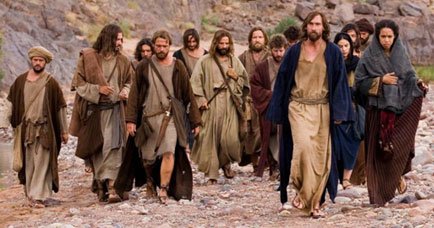"Salt is
good; but if the salt becomes unsalty, with what will you make it salty again?
Have salt in yourselves, and be at peace with one another."
Two final “salt” sayings are attached to the end of the sermon about giving honor to the lowest. Jesus speaks of the nature of his followers—that they are to be righteous. But if the “righteous” have no righteousness, then they cannot be made righteous. This is telling the disciples not to be like the scribes and Pharisees—if you are so convinced in your righteousness when you are doing evil, you cannot repent.
Then Jesus tells them what this “salt” or righteousness is—it is peace among each other. The peace Jesus is speaking of is summarized in what he had just been describing—Seeking to be the one of lowest honor; granting honor to the lowest; openly welcoming “unofficial” disciples; and not causing the lowest to fall away from the faith. This is peace among the disciples.
Often we consider peace to be an experience of no stress. Or we might think of it as a lack of conflict or war. In the Bible, peace (Hebrew: shalom) is a community that supports each other, loves each other and is stronger together than apart.
If we are to be at peace, the peace that Jesus commands, we need to stop rejecting those who don't fit into our idea of who "really" belongs.
Sure, there are people who disrupt our order, but they are there to teach us that Jesus' true followers aren't of only one kind of order. God establishes a different order in different people.
Sure, there are people who are sinners, but Jesus welcomed sinners so we could learn what is real sin and what just looks like sin, and to give the most severe sinners another chance to be with God. And another. And another.
And there are people who are wrong about God. Very wrong. They can't discuss anything without being so, so wrong. And sometimes we are those people. And if we didn't include the "wrong" in our group, we would never learn how wrong we are.
Jesus' peace doesn't look like peace by our definition. It might look like chaos, like a bunch of people who can't get their stuff together. But if those very people love each other and support each other and welcome each other despite their differences and sins and disagreements, then Jesus is reigning.














